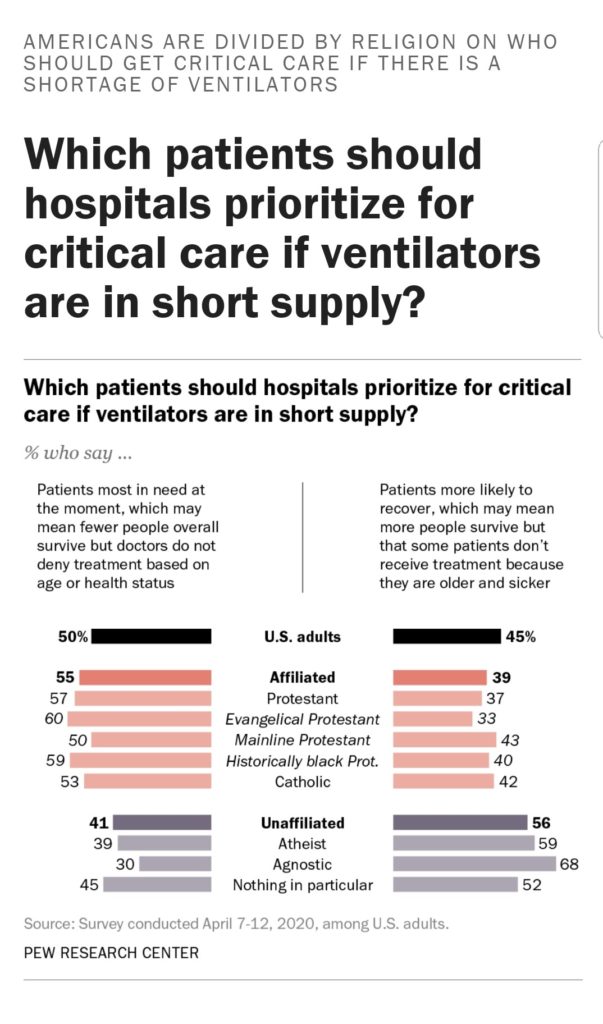
Photo by Rod Long on Unsplash
If there’s anything I’ve learned from reading and watching The Walking Dead it’s that the Zombie Apocalypse is filled with life-and-death moral decisions.
The Covid-19 pandemic has created conditions in which hospitals have had to make difficult decisions–life-and-death, moral decisions–about who gets a ventilator and who does not.
There are two ways to go in this.
Either you give them to the patients in the most need at the moment, or you give them to patients most likely to recover. If you go the first route, more people will die, if you take the second path, you are denying treatment to people who need it.
A recent Pew Research Center discovered that religious people tend to say we should give the life-giving treatment to the people who need it most. And the less religious folks lean toward the more utilitarian–give it to those most likely to recover.
[click_to_tweet tweet=”Pew survey shows that Christians are less likely to survive the zombie apocalypse. #zombies ” quote=”Pew survey shows that Christians are less likely to survive the zombie apocalypse. “]
 When zombies lurch through our streets, the life-and-death, moral decisions increase–it’s like you need to make one every 20 minutes or so.
When zombies lurch through our streets, the life-and-death, moral decisions increase–it’s like you need to make one every 20 minutes or so.
Zombie narratives are about these moral dilemmas. Actually, they are about the difficulty and the necessity of making a practical decision–no matter how hard it is, and it’s usually agonizing.
The research by the Pew Research Center shows us that religious people will not necessarily take the practical path. With the increase in the number of deadly decisions that need to be made during the zombie infestation, consistently taking the non-utilitarian route will result in the death of more people.
Would anything be gained by the less practical approach? More people would likely die, but society would be built on the idea that those who are sick or old would receive the care that they need. That foundation is worth considering.
